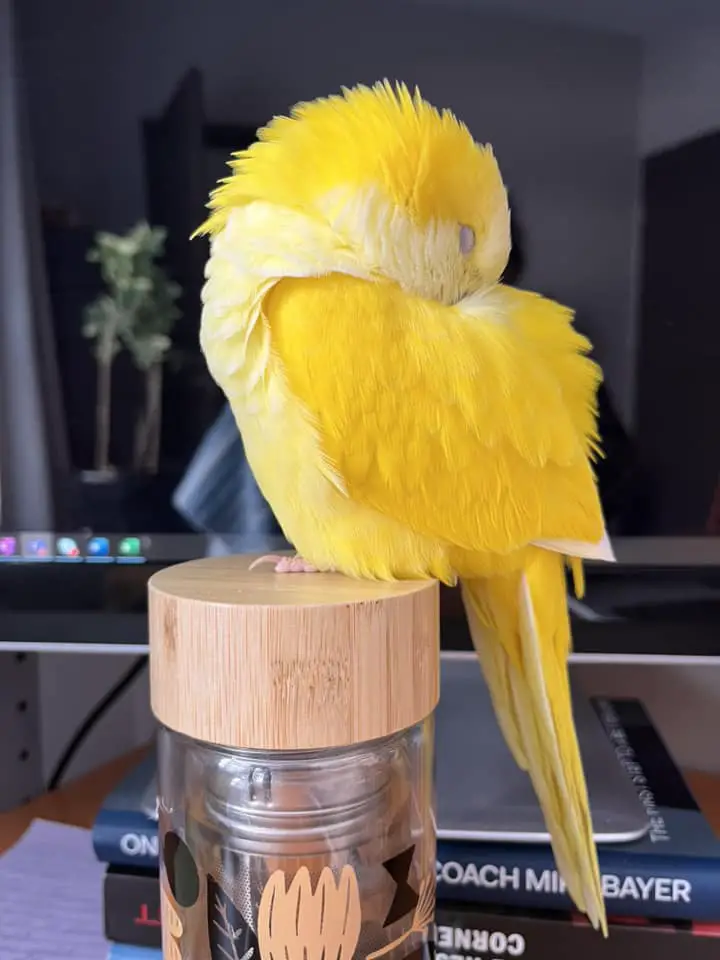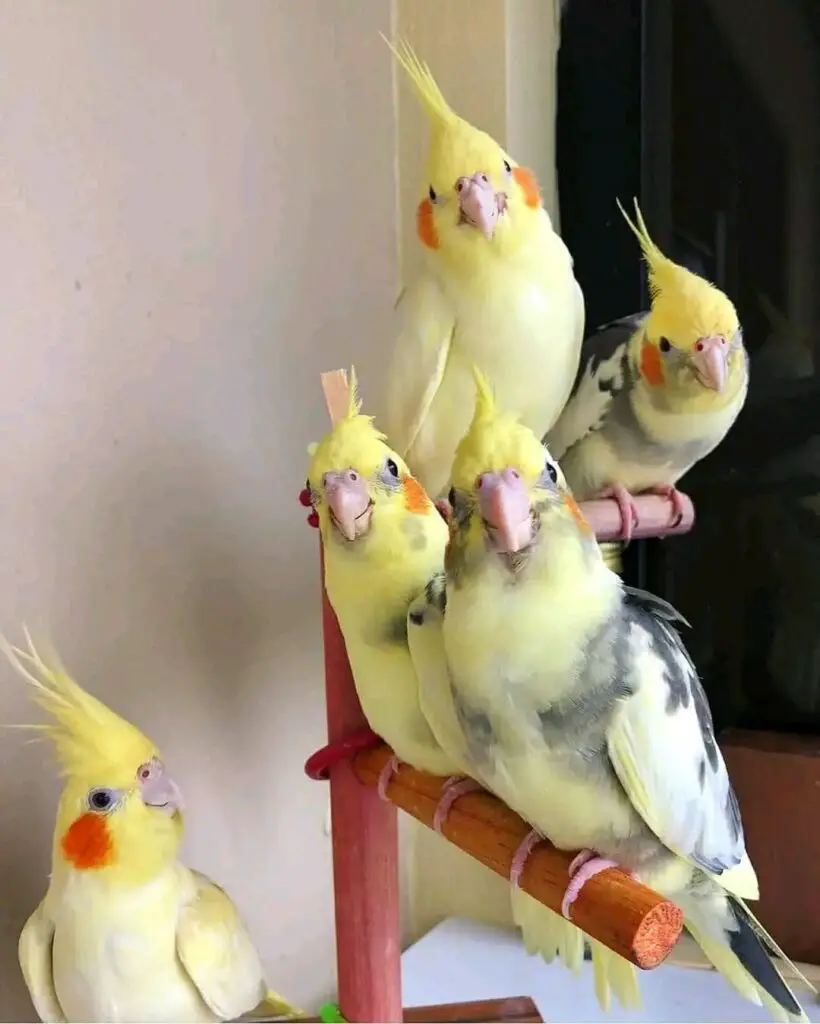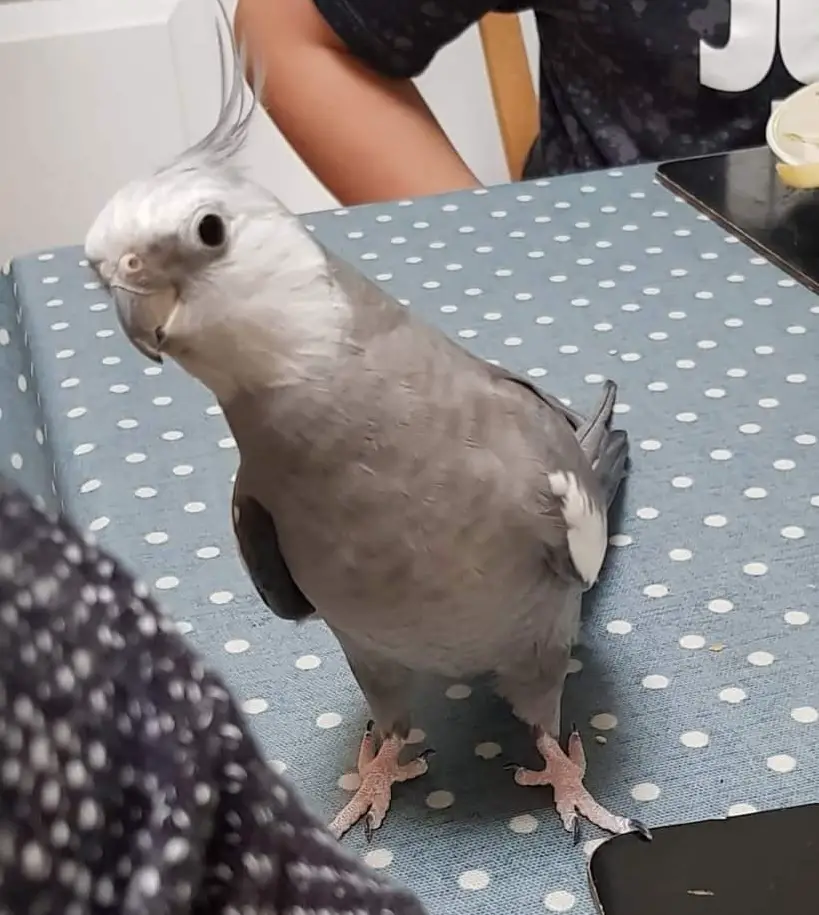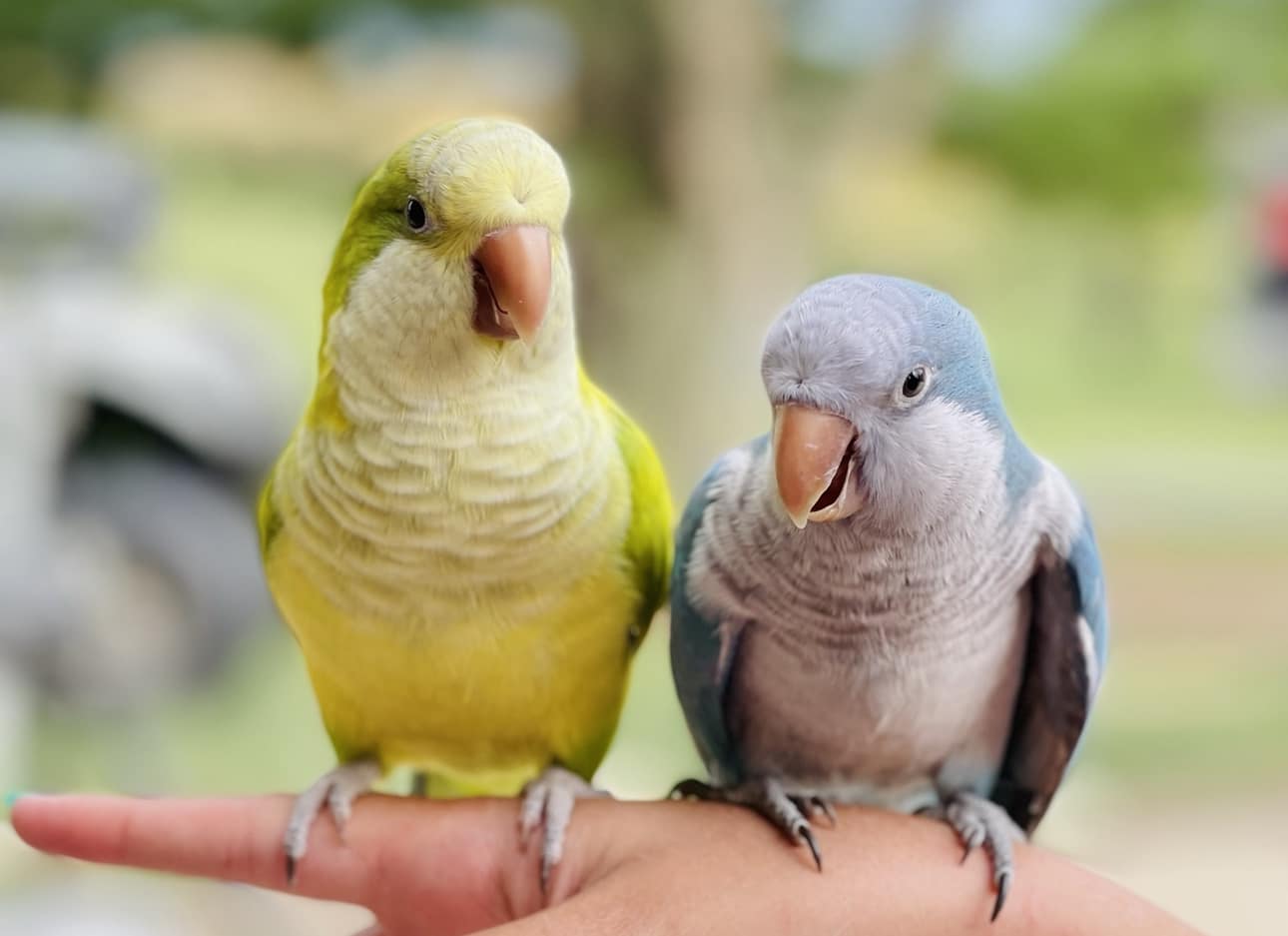Cockatiels Vs Quaker parrots: Similarities and differences between Cockatiels and Quaker parrots.
Are you considering getting a pet bird but are unsure which species to choose? Two popular options are Cockatiels and Quaker parrots, but how do these birds compare? Both species have unique personalities, care requirements, and potential challenges, making it important to carefully consider which bird is the best fit for you and your lifestyle.
In this article, we’ll explore the similarities and differences between Cockatiels and Quaker parrots to help you make an informed decision about which bird may be the best companion for you.
Cockatiels Vs Quaker parrots: Personality
Cockatiels are known for being affectionate and social but can also be shy at times. They are gentle birds and are easily tamed. Quakers, on the other hand, are known for their mischievous and playful personality. They are intelligent birds that enjoy problem solving and playing with toys. Quakers are also known for their high energy levels and their tendency to develop close bonds with their owners.
Cockatiels Vs Quaker parrots: Care and Maintenance
Both Cockatiels and Quakers are relatively low maintenance birds but have different care requirements. Cockatiels need a smaller cage than Quakers and benefit from daily out-of-cage time to explore and play. Quakers, on the other hand, need a larger cage and plenty of physical and mental stimulation to keep them happy and healthy.

Cockatiels Vs Quaker parrots: Diet
Both Cockatiels and Quakers are omnivores and require a balanced diet of seeds, pellets, and fresh fruits and vegetables. Cockatiels also enjoy occasional treats such as millet or dried fruits, while Quakers can benefit from more variety in their diet, including nuts and other high-fat foods.
Cockatiels Vs Quaker parrots: Toys
Both birds enjoy playing with toys, but Cockatiels tend to prefer toys that they can chew on or shred, while Quakers enjoy playing with toys that they can manipulate, such as ladders and swings.
Cockatiels Vs Quaker parrots: Noise
Cockatiels are generally quieter birds compared to Quakers, but their noise level can still be significant. They are known for their soft chirps and whistles, but can also make louder calls and screeches when stressed or excited. Quakers are known for their loud, raucous calls and can be quite noisy, especially in the morning and late afternoon. Some individuals may be noisier than others. Providing plenty of toys and other forms of stimulation can help reduce their noise levels.
Which one bites more, cockatiels or quakers?
Both Cockatiels and Quaker parrots can bite, but Quakers are known to be more prone to biting than Cockatiels. This can be due to a variety of factors, including fear, anxiety, territorial behavior, or discomfort.
It’s important to remember that all birds, regardless of species, can bite if they feel threatened or uncomfortable. Proper socialization, training, and providing a secure and comfortable environment can help reduce the likelihood of biting behavior
Which one has feather plucking issues, cockatiels or quakers?
Both Cockatiels and Quaker parrots can experience feather plucking, which is a behavioral issue where birds pull out their own feathers. But feather plucking is less found in cockatiels. The exact causes of feather plucking can vary and may include stress, boredom, malnutrition, or a medical issue.
Feather plucking can occur in any bird species, and it’s important to address the underlying cause to prevent it from becoming a persistent problem. If you suspect your bird is plucking its feathers, it’s important to seek the advice of a veterinarian or an avian behaviorist.

Which one is more intelligent, cockatiels or quakers?
Both Cockatiels and Quaker parrots are intelligent birds, but Quakers are considered to be more intelligent. Quakers are known for their playful, mischievous personalities and their ability to learn tricks and even speak a few words. They are also highly social and benefit from interaction and mental stimulation.
Cockatiels, while not as highly intelligent as Quakers, are still intelligent birds that are easily tamed and affectionate.
Which one is more cage territorial, cockatiels or quakers?
Quakers are known for their cage territorial behavior. On the other hand, cockatiels may show cage territorial behavior during hormonal season only. However, providing plenty of out-of-cage time and a spacious cage can help reduce territorial behavior.
Which one is more messy, cockatiels or quakers?
Both Cockatiels and Quakers can be messy, but it can be managed through proper feeding and cage maintenance practices.
Which one is easy to potty train, cockatiels or quakers?
Potty training birds can be a challenge, but some individuals are easier to train than others. Providing a designated potty area and positive reinforcement can help with the process. Wearing a flight suit can help protect your carpet, but is not a guarantee.
Which one is easy to Train, cockatiels or quakers?
Both Cockatiels and Quakers can be trained to some extent, but Quakers are generally more trainable due to their high intelligence and playful personality. Quakers are capable of learning tricks and can even learn to speak a few words, while Cockatiels tend to be more interested in physical activities and may be less likely to talk.
Quakers are illegal in some states of the USA, are cockatiels illegal too?
Some states in the US have banned the ownership of Quaker parrots as pets due to their potential to become invasive species. The states that have banned Quaker parrots include California, Georgia, Hawaii, and Kentucky.
Cockatiels are not illegal in any states in the US and are widely kept as pets. However, it’s always best to check with your local authorities to make sure there are no local restrictions or laws that may affect pet ownership.

Are Quaker parrots OK alone?
Quaker parrots are social birds and do best with regular interaction and companionship. They are known for their playful, mischievous personalities and their ability to form strong bonds with their owners. While some Quakers may tolerate being alone for short periods, it is generally not recommended to leave them alone for extended periods of time.
Ideally, Quakers should have a companion, whether it’s another Quaker, a bird of a different species, or a human. Regular interaction and playtime can help prevent boredom and destructive behavior, which are common issues when birds are left alone for long periods of time.
Can a quaker parrot live with a cockatiel?
In some cases, Quaker parrots and Cockatiels can live together in the same household. However, it’s important to keep in mind that every bird is unique and may have different personalities, temperaments, and needs.
If you’re considering keeping Quaker parrots and Cockatiels together, it’s important to provide plenty of space for each bird to have its own territory, as well as enough toys, perches, and other forms of enrichment to keep both birds happy and entertained. It’s also important to monitor their interactions and make sure that both birds are getting along well and not engaging in aggressive behavior.
If one of the birds is significantly larger or more dominant, it’s important to provide extra space and resources to the smaller or less dominant bird to help prevent aggression and establish a harmonious living situation. In general, it’s best to introduce the birds gradually and under close supervision.
